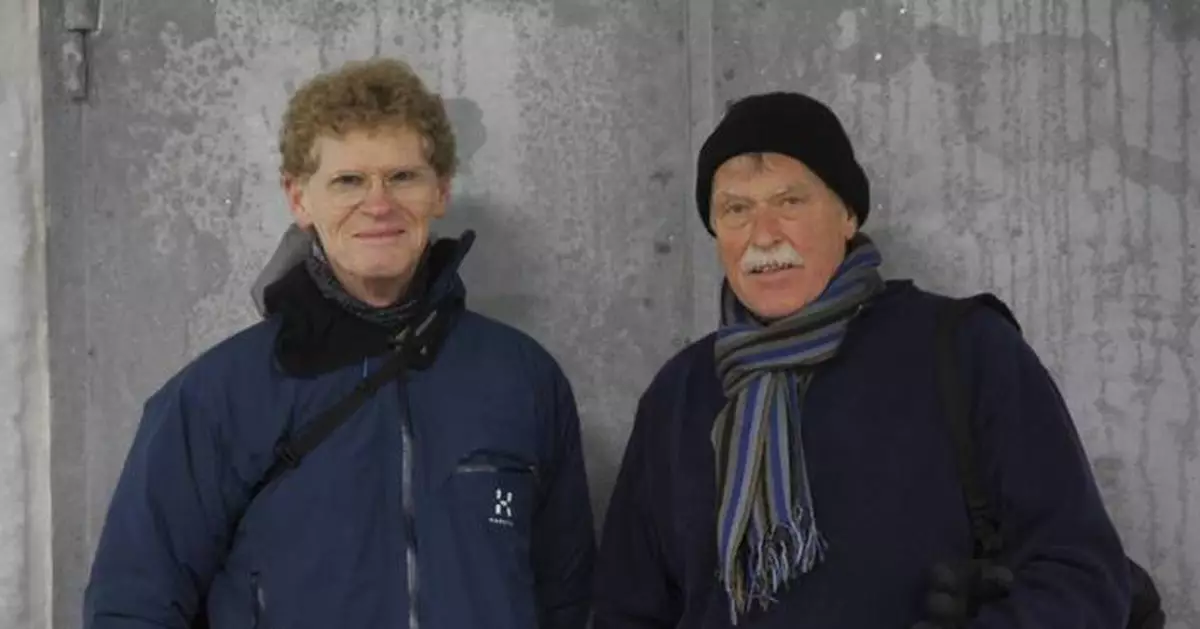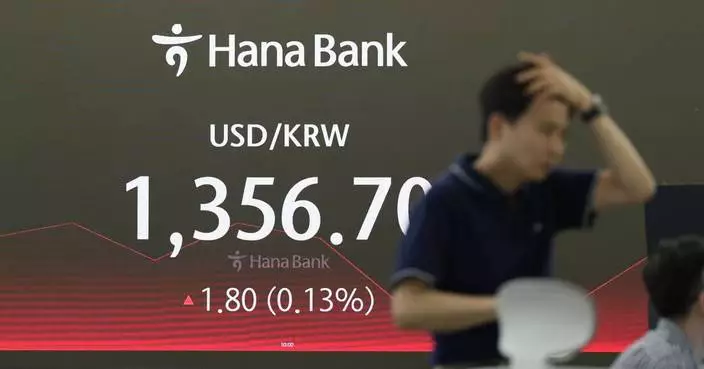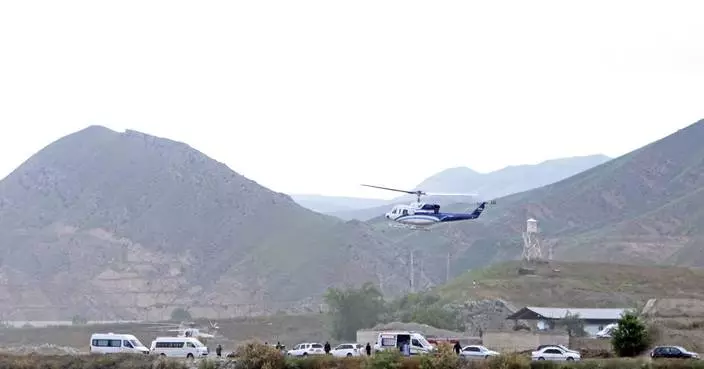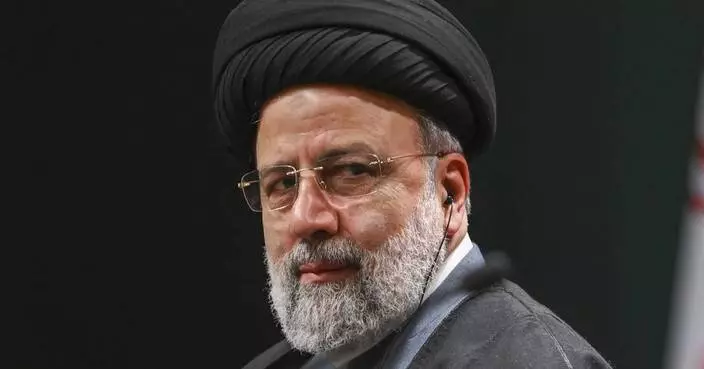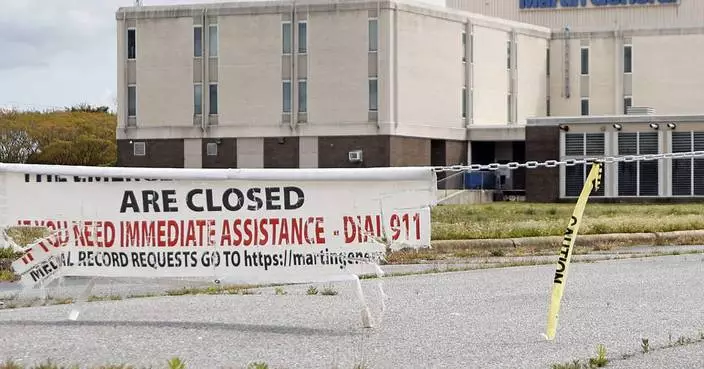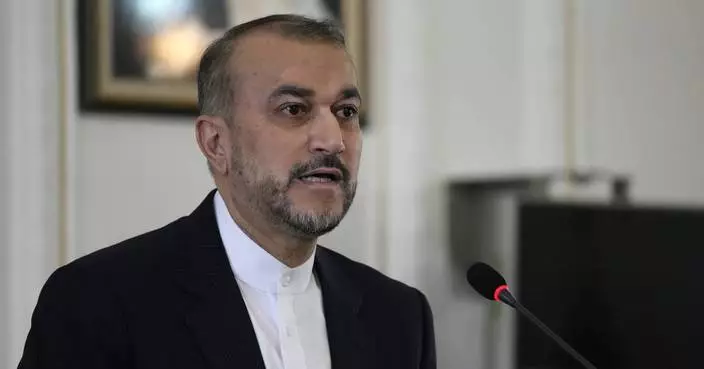DES MOINES, Iowa (AP) — Two men who were instrumental in the “craziest idea anyone ever had” of creating a global seed vault designed to safeguard the world's agricultural diversity will be honored as the 2024 World Food Prize laureates, officials announced Thursday in Washington.
Cary Fowler, the U.S. special envoy for Global Food Security, and Geoffrey Hawtin, an agricultural scientist from the United Kingdom and executive board member at the Global Crop Diversity Trust, will be awarded the annual prize this fall in Des Moines, Iowa, where the food prize foundation is based. They will split a $500,000 award.
The winners of the prize were named at the State Department, where Secretary of State Antony Blinken lauded the men for their “critical role in preserving crop diversity" at seed banks around the world and at a global seed vault, which now protects over 6,000 varieties of crops and culturally important plants.
Fowler and Hawtin were leaders in effort starting about 2004 to build a back-up vault of the world's crop seeds at a spot where it could be safe from political upheaval and environmental changes. A location was chosen on a Norwegian island in the Arctic Circle where temperatures could ensure seeds could be kept safe in a facility built into the side of a mountain.
The Svalbard Global Seed Vault opened in 2008 and now holds 1.25 million seed samples from nearly every country in the world.
Fowler, who first proposed establishing the seed vault in Norway, said his idea initially was met by puzzlement by the leaders of seed banks in some countries.
“To a lot of people today, it sounds like a perfectly reasonable thing to do. It's a valuable natural resource and you want to offer robust protection for it,” he said in an interview from Saudi Arabia. “Fifteen years ago, shipping a lot of seeds to the closest place to the North Pole that you can fly into, putting them inside a mountain — that's the craziest idea anybody ever had.”
Hundreds of smaller seed banks have existed in other countries for many decades, but Fowler said he was motivated by a concern that climate change would throw agriculture into turmoil, making a plentiful seed supply even more essential.
Hawtin said that there were plenty of existing crop threats, such as insects, diseases and land degradation, but that climate change heightened the need for a secure, backup seed vault. In part, that's because climate change has the potential of making those earlier problems even worse.
“You end up with an entirely new spectrum of pests and diseases under different climate regimes,” Hawtin said in an interview from southwest England. “Climate change is putting a whole lot of extra problems on what has always been significant ones.”
Fowler and Hawtin said they hope their selection as World Food Prize laureates will enable them push for hundreds of millions of dollars in additional funding of seed bank endowments around the world. Maintaining those operations is relatively cheap, especially when considering how essential they are to ensuring a plentiful food supply, but the funding needs continue forever.
“This is really a chance to get that message out and say, look, this relatively small amount of money is our insurance policy, our insurance policy that we're going to be able to feed the world in 50 years,” Hawtin said.
The World Food Prize was founded by Norman Borlaug, who received the Nobel Peace Prize in 1970 for his part in the Green Revolution, which dramatically increased crop yields and reduced the threat of starvation in many countries. The food prize will be awarded at the annual Norman E. Borlaug International Dialogue, held Oct. 29-31 in Des Moines.
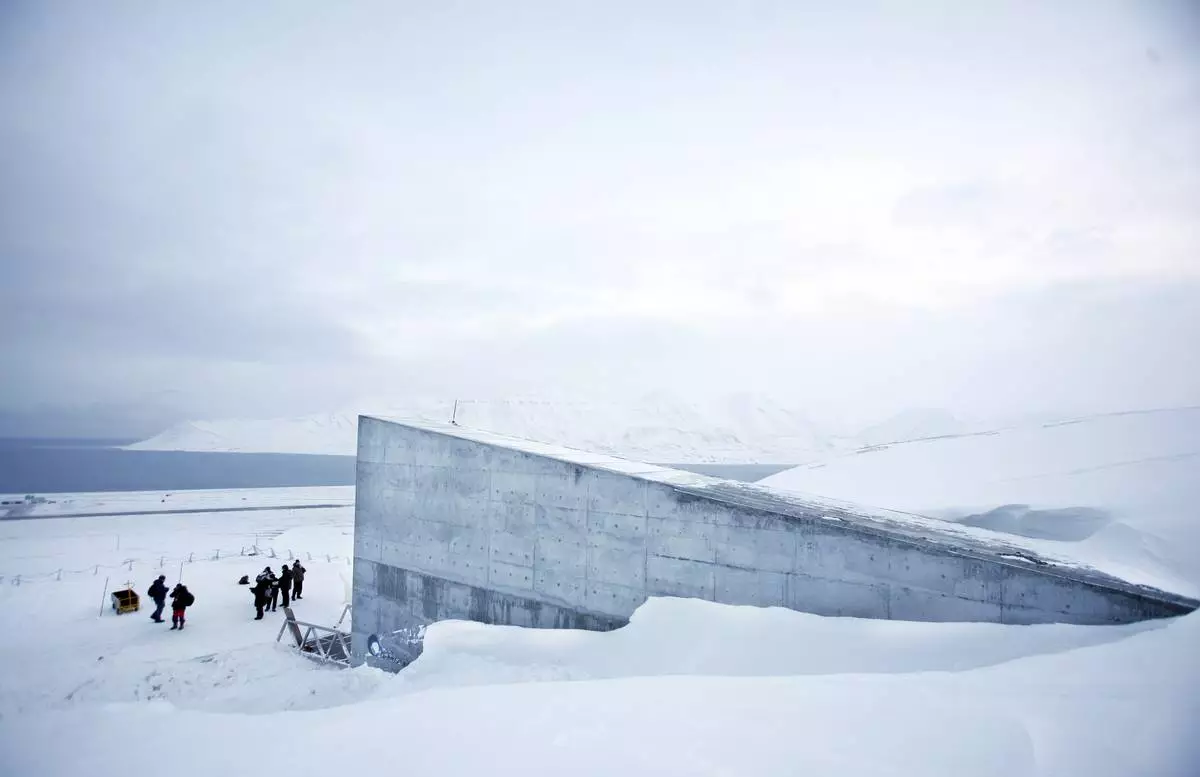
FILE - The Svalbard Global Seed Vault is seen in Longyearbyen, Svalbard, Norway, Monday Feb. 25, 2008. Two men who were instrumental in the “craziest idea anyone ever had” of creating a global seed vault designed to safeguard the world's agricultural diversity will be honored as the 2024 World Food Prize laureates, officials announced Thursday, May 9, 2024, in Washington. (AP Photo/John McConnico, File)
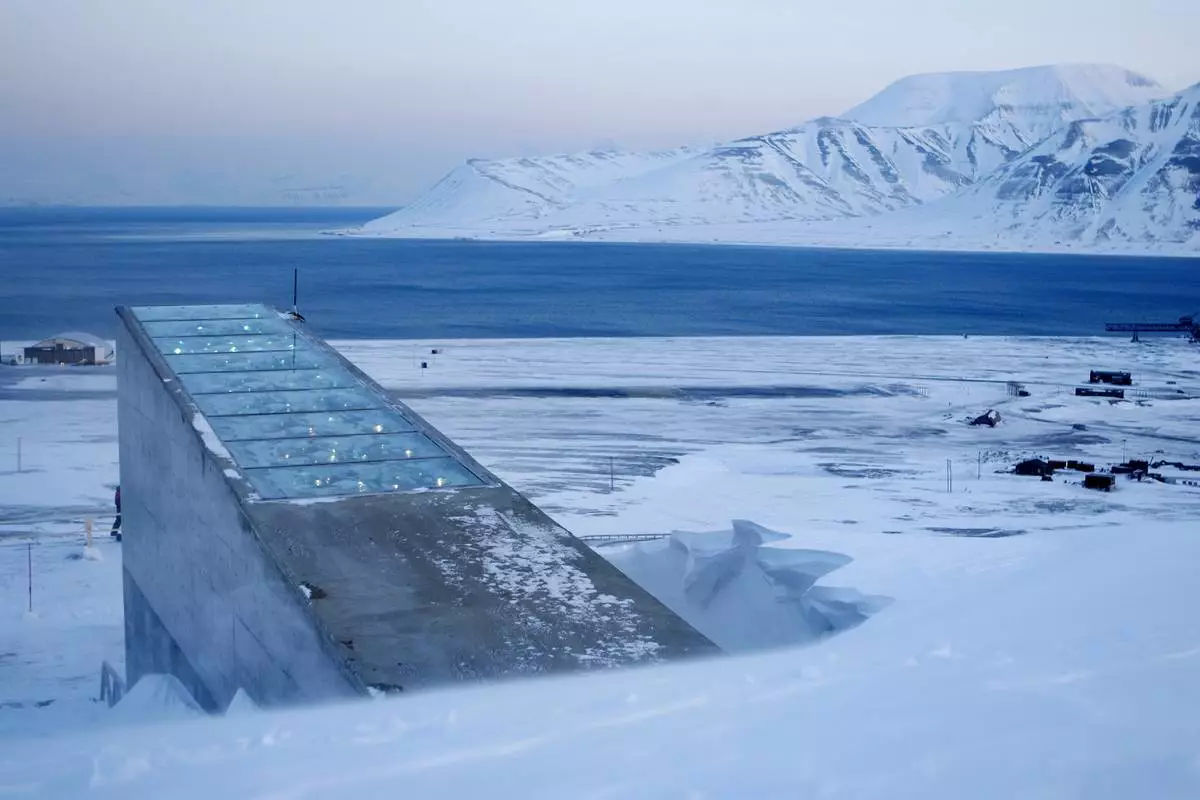
FILE - The Svalbard Global Seed Vault near Longyearbyen in Svalbard, Norway, Feb. 26, 2008. Two men who were instrumental in the “craziest idea anyone ever had” of creating a global seed vault designed to safeguard the world's agricultural diversity will be honored as the 2024 World Food Prize laureates, officials announced Thursday, May 9, 2024, in Washington. (Hakon Mosvold Larsen/Scanpix Norway via AP, File)
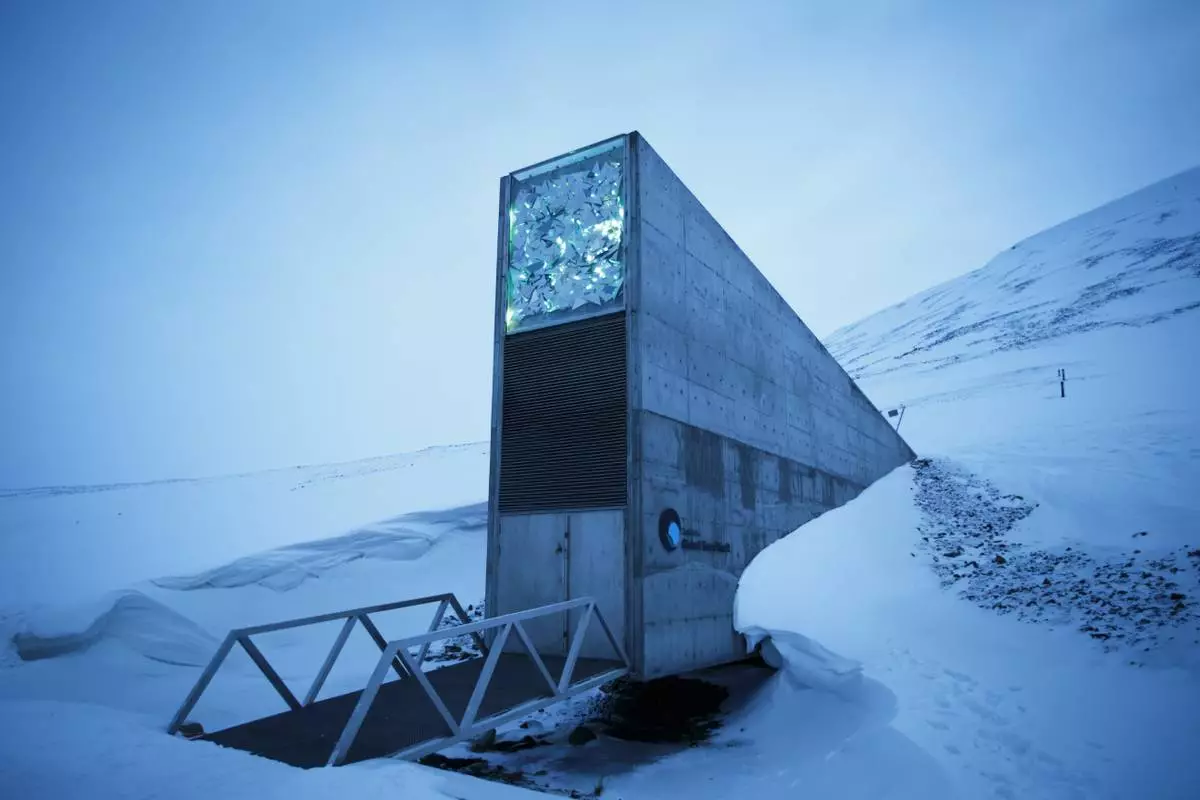
FILE - Exterior view of the Svalbard Global Seed Vault, the secure seed bank on Svalbard, Norway, March 2, 2016. Two men who were instrumental in the “craziest idea anyone ever had” of creating a global seed vault designed to safeguard the world's agricultural diversity will be honored as the 2024 World Food Prize laureates, officials announced Thursday, May 9, 2024, in Washington. (Heiko Junge/ NTB scanpix via AP, File)
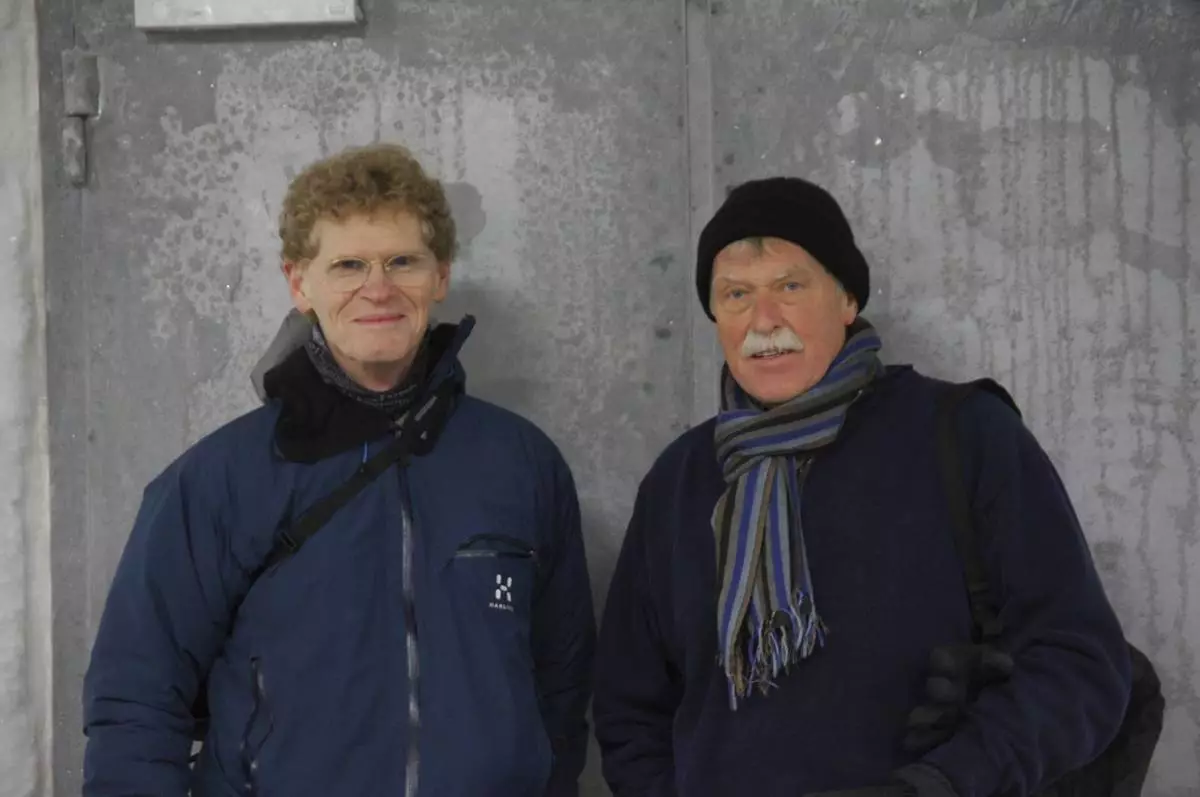
In this photo released by the World Food Prize Foundation, Cary Fowler, left, and Geoffrey Hawtin are shown Feb. 24, 2014, at the Svalbard Global Seed Vault in Norway. On Thursday, May 9, 2024, Fowler and Hawtin were awarded the World Food Prize because of their key roles in creating the seed vault, which now holds 1.25 million seed samples from almost every country in the world. Seeds vaults are important to ensuring the viability of agricultural crops, especially amid a changing climate. (World Food Prize Foundation via AP)
JERUSALEM (AP) — The helicopter crash in which Iranian President Ebrahim Raisi, the country’s foreign minister and other officials were killed is likely to reverberate across the Middle East, where Iran’s influence runs wide and deep.
That's because Iran has spent decades supporting armed groups and militants in Lebanon, Syria, Iraq, Yemen and the Palestinian territories, allowing it to project power and potentially deter attacks from the United States or Israel, the sworn enemies of its 1979 Islamic Revolution.
Tensions have never been higher than they were last month, when Iran under Raisi and Supreme Leader Ayatollah Ali Khamenei launched hundreds of drones and ballistic missiles at Israel in response to an airstrike on an Iranian Consulate in Syria that killed two Iranian generals and five officers.
Israel, with the help of the United States, Britain, Jordan and others, intercepted nearly all the projectiles. In response, Israel apparently launched its own strike against an air defense radar system in the Iranian city of Isfahan, causing no casualties but sending an unmistakable message.
The sides have waged a shadow war of covert operations and cyberattacks for years, but the exchange of fire in April was their first direct military confrontation.
The ongoing war between Israel and Hamas has drawn in other Iranian allies, with each attack and counterattack threatening to set off a wider war.
It's a combustible mix that could be ignited by unexpected events, such as Sunday's deadly crash.
Israel has long viewed Iran as its greatest threat because of Tehran's controversial nuclear program, its ballistic missiles and its support for armed groups sworn to Israel's destruction.
Iran views itself as the chief patron of Palestinian resistance to Israeli rule, and top officials for years have called for Israel to be wiped off the map.
Raisi, who was a hard-liner viewed as a protégé and possible successor of Khamenei, chastised Israel last month, saying “the Zionist Israeli regime has been committing oppression against the people of Palestine for 75 years.”
“First of all we have to expel the usurpers, secondly we should make them pay the cost for all the damages they have created, and thirdly, we have to bring to justice the oppressor and usurper," he said.
Israel is believed to have carried out numerous attacks over the years targeting senior Iranian military officials and nuclear scientists.
There is no evidence Israel was involved in Sunday's helicopter crash, and Israeli officials have not commented on the incident.
Arab countries on the Persian Gulf have also long viewed Iran with suspicion, a key factor in the decision of the United Arab Emirates and Bahrain to normalize relations with Israel in 2020, and of Saudi Arabia to consider such a move.
Iran has provided financial and other support over the years to the Palestinian militant group Hamas, which led the Oct. 7 attack into Israel that triggered the Gaza war, and the smaller but more radical Palestinian Islamic Jihad, which took part in it. But there is no evidence that Iran was directly involved in the attack.
Since the start of the war, Iran's leaders have expressed solidarity with the Palestinians. Their allies in the region have gone much further.
Lebanon's Hezbollah militant group, Iran's most militarily advanced proxy, has waged a low-intensity conflict with Israel since the start of the Gaza war. The two sides have traded strikes on a near-daily basis along the Israel-Lebanon border, forcing tens of thousands of people on both sides to flee.
So far, however, the conflict has not boiled over into a full-blown war that would be disastrous for both countries.
Iran-backed militias in Syria and Iraq launched repeated attacks on U.S. bases in the opening months of the war but pulled back after U.S. retaliatory strikes for a drone attack that killed three American soldiers in January.
Yemen's Houthi rebels, another ally of Iran, have repeatedly targeted international shipping in what they portray as a blockade of Israel. Those strikes, which often target ships with no apparent links to Israel, have also drawn U.S.-led retaliation.
Iran's influence extends beyond the Middle East and its rivalry with Israel.
Israel and Western countries have long suspected Iran of pursuing nuclear weapons in the guise of a peaceful atomic program in what they see as a threat to non-proliferation everywhere.
Then-President Donald Trump's withdrawal from a landmark nuclear pact between Iran and world powers in 2018, and his imposition of crushing sanctions, led Iran to gradually abandon all the limits placed on its program by the deal.
These days, Iran is enriching uranium to up to 60% purity — near weapons-grade levels of 90%. Surveillance cameras installed by the U.N. nuclear agency have been disrupted, and Iran has barred some of the agency's most experienced inspectors. Iran has always insisted its nuclear program is for purely peaceful purposes, but the United States and others believe it had an active nuclear weapons program until 2003.
Israel is widely believed to be the only nuclear-armed power in the Middle East but has never acknowledged having such weapons.
Iran has also emerged as a key ally of Russia following its invasion of Ukraine, and is widely accused of supplying exploding drones that have wreaked havoc on Ukraine's cities. Raisi himself denied the allegations last fall in an interview with The Associated Press, saying Iran had not supplied such weapons since the outbreak of hostilities in February 2022.
Iranian officials have made contradictory comments about the drones, while U.S. and European officials say the sheer number being used in the war in Ukraine shows that the flow of such weapons has intensified since the war began.

In this photo provided by Moj News Agency, rescue teams' vehicles are seen near the site of the incident of the helicopter carrying Iranian President Ebrahim Raisi in Varzaghan in northwestern Iran, Sunday, May 19, 2024. A helicopter carrying President Raisi, the country's foreign minister and other officials apparently crashed in the mountainous northwest reaches of Iran on Sunday, sparking a massive rescue operation in a fog-shrouded forest as the public was urged to pray. (Azin Haghighi/Moj News Agency via AP)

An Iranian woman prays for President Ebrahim Raisi in a ceremony at Vali-e-Asr square in downtown Tehran, Iran, Sunday, May 19, 2024. A helicopter carrying President Raisi, the country's foreign minister and other officials apparently crashed in the mountainous northwest reaches of Iran on Sunday, sparking a massive rescue operation in a fog-shrouded forest as the public was urged to pray. (AP Photo/Vahid Salemi)

People pray for President Ebrahim Raisi in a ceremony at Vali-e-Asr square in downtown Tehran, Iran, Sunday, May 19, 2024. A helicopter carrying President Raisi, the country's foreign minister and other officials apparently crashed in the mountainous northwest reaches of Iran on Sunday, sparking a massive rescue operation in a fog-shrouded forest as the public was urged to pray. (AP Photo/Vahid Salemi)

FILE - People gather around a component from an intercepted ballistic missile that fell near the Dead Sea in Israel, Saturday, April 20, 2024. The apparent crash of a helicopter carrying Iranian President Ebrahim Raisi, the country's foreign minister and other top officials is likely to reverberate across the Middle East. Tensions have soared since the start of the Israel-Hamas war, and Israel and Iran directly traded fire for the first time ever in April. (AP Photo/Itamar Grinberg, File)

FILE - Iranian worshippers chant slogans during an anti-Israeli gathering after Friday prayers in Tehran, Iran, Friday, April 19, 2024. The apparent crash of a helicopter carrying Iranian President Ebrahim Raisi, the country's foreign minister and other top officials is likely to reverberate across the Middle East. Tensions have soared since the start of the Israel-Hamas war, and Israel and Iran directly traded fire for the first time ever in April. (AP Photo/Vahid Salemi, File)






